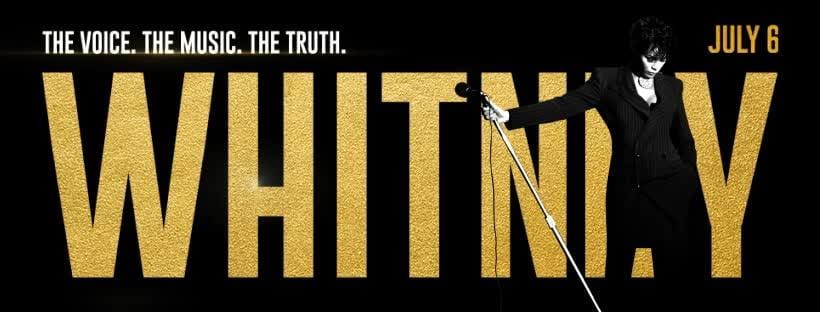 It’s been six years since Whitney Houston died. Before her death, the singer had gone from one of the most successful pop stars of all-time to late-night punchline thanks to her reality show with then-husband, Bobby Brown. After her death, that tragic downfall took on new dimensions as the public learned about her drug addictions and possible closeted homosexuality. Director Kevin Macdonald’s new documentary Whitney isn’t the first piece of media that tries to reconcile those two phases of Houston’s public persona, but it may be the closest we’ll ever come to getting a full picture of the woman behind the voice.
It’s been six years since Whitney Houston died. Before her death, the singer had gone from one of the most successful pop stars of all-time to late-night punchline thanks to her reality show with then-husband, Bobby Brown. After her death, that tragic downfall took on new dimensions as the public learned about her drug addictions and possible closeted homosexuality. Director Kevin Macdonald’s new documentary Whitney isn’t the first piece of media that tries to reconcile those two phases of Houston’s public persona, but it may be the closest we’ll ever come to getting a full picture of the woman behind the voice.
Where 2017’s Whitney: Can I Be Me is a fairly linear retelling of Houston’s life that relies heavily on exclusive footage obtained from Houston’s 1999 World Tour, Whitney tries to interrogate the singer’s place in pop culture. Every clip is in conversation with the next, meant to imply something about Houston’s life or what she means.
Macdonald sets our expectations from the start with a montage that immediately transports us to the Reagan era (the commercialism, the colors) and Whitney is the voice that defines that period. The energy is almost shocking, but even more shocking is the way it suddenly gives way to Newark in the late ‘60s, where Whitney grew up. The editing is almost confrontational, and it signals that Macdonald and editor Sam Rice-Edwards aren’t just relaying facts, they have a point of view.
Though the ways Macdonald and Rice-Edwards edit the interviews is often sharp (the way they cut off L.A. Reid as he claims he was unaware of Houston’s drug addictions is particularly brutal), their cleverest choices are the way they use Whitney’s voice. While her mother, singer Cissy Houston, may have helped Whitney cultivate her talent, many of her acquaintances refer to Whitney’s voice as a gift from God.
Houston’s singing is the part of her audiences know best and yet Macdonald turns it into something almost elemental, even magical here. After the opening montage, we hear only snippets of Whitney singing, nascent previews of the vibrancy we know is coming. It’s not until the film gets to her signing with Arista Records and Clive Davis that Macdonald fully unleashes her on us again.
It starts as a tease–the same tease that begins “I Wanna Dance with Somebody (Who Loves Me)”–this time without backing track. On their own, the notes are stark and full of power, sending a thrill down your spine. And then the soundtrack explodes with the full song and, combined with sweeping camera movements that show one single after another hitting the top of the charts, Macdonald manages to convey just how quickly and completely Houston shot to pop superstardom.
His use of Whitney’s voice is just as clever when it comes to the moments she doesn’t sing. Sometimes he uses her interviews to emphasize his point, like the film’s opening moments, when Whitney describes a dream where she’s being chased by the devil. In other moments, like the callback to the infamous Diane Sawyer “crack is whack” interview, he weaponizes them. However, even with so much footage, Whitney still ends up feeling like an enigma when it comes to the juiciest parts of her life.
Though Macdonald’s film is great, it’s so comprehensive that what’s missing stands out even more. The most important is an interview with Houston’s alleged lover, Robyn Crawford. A childhood friend and longtime assistant/creative director, Crawford has largely refused to comment publicly on her relationship with Whitney outside of an obituary she wrote for Esquire (where her wife worked at the time) after Houston’s death.
We first hear of her as just “Robyn,” a name without context belonging to the person who best understands how to handle Whitney. Our first context comes from Houston’s brother, Gary Houston. You can hear the spite in his voice as he dismisses Crawford as Whitney’s childhood friend who became one of her hangers on, until finally Macdonald finally cuts to someone else to say the word Gary can’t: “lesbian.”
Macdonald is not nearly so reluctant as some of his interview subjects, but he pushes where he can and confronts Whitney’s “fluid” sexuality early on. Still, as willing as Macdonald is to ask the question, he can only do so much to give an answer. He can get confirmation from those on the periphery, but not those who knew the singer best: Bobby Brown becomes hostile at the mention of Robyn and we never even see him ask Cissy Houston or Clive Davis.
Perhaps it’s inevitable that Macdonald’s film ends up feeling incomplete. It wasn’t until after her death that the truth of Whitney Houston’s life became public and the central players are either unwilling (Crawford) or unable (daughter Bobbi Kristina, who died in 2015) to be as frank as viewers want. In the end, the only truth that remains unquestioned is the power in Whitney’s voice, a gift so clear and awe-inspiring that it felt like touching the divine.
Rating: 8/10

